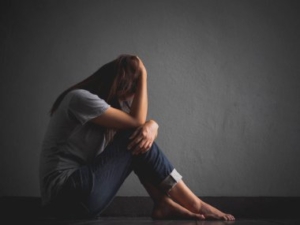
WHAT IS DEPRESSION?
Depression is a disturbance of mood and is characterized by a loss of interest or pleasure in normal everyday activities. People who are depressed may feel “down in the dumps” for weeks, months, or even years at a time. Depression should not be confused with the passing feelings of unhappiness and dissatisfaction that everyone experiences from time to time. However, when these feelings continue for more than a few weeks, depression may be the cause.
CAUSES FOR DEPRESSION
Depression is caused by a combination of genetic, environmental, and psychological factors. Important neurotransmitters—chemicals that brain cells use to communicate—are out of balance in depression. The parts of the brain involved in mood, thinking, sleep, appetite, and behavior appear different. Some types of depression tend to run in families. In addition, trauma, loss of a loved one, a difficult relationship, or any stressful situation may trigger a depressive episode.
SYMPTOMS OF DEPRESSION
- SADNESS OR EMPTINESS
- HOPELESSNESS
- WORTHLESSNESS
- LOW ENERGY OR FATIGUE
- DIFFICULTY CONCENTRATING
- MISSING WORK/SCHOOL
- LOSS OF INTEREST IN NORMAL ACTIVITIES
- SLEEP DISTURBANCES
- APPETITE OR WEIGHT CHANGES
- PHYSICAL ACHES AND PAINS
- IRRITABILITY
- THOUGHTS OF DEATH OR SUICIDE
DIAGNOSING AND TREATING DEPRESSION
Depression is highly responsive to treatment. In fact, most people with depression report feeling better within a few weeks of starting treatment. The first step to getting appropriate treatment is to visit with a Psychologist. Your Psychologist will discuss with you any family history of depression or other mental disorder, and get a complete history of your symptoms. You should discuss when your symptoms started, how long they have lasted, how severe they are, and whether they have occurred before and if so, how they were treated. The Psychologist may also ask if you are using alcohol or drugs, and if you are thinking about death or suicide. Once diagnosed, a person with depression can be treated in several ways. The most common treatments are medication and psychotherapy. Although medication may help to control it, individuals must learn to recognize their own patterns of depression and develop more effective ways to cope with them.
